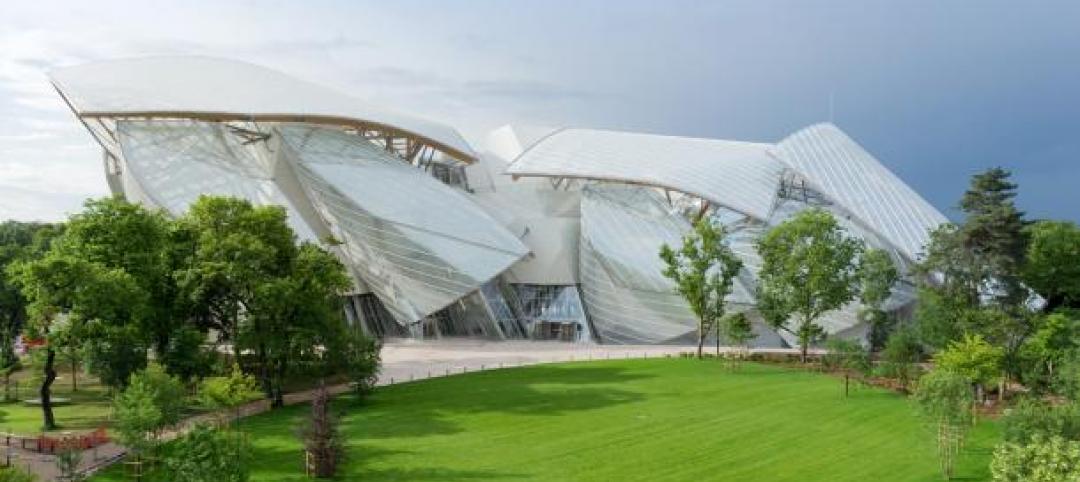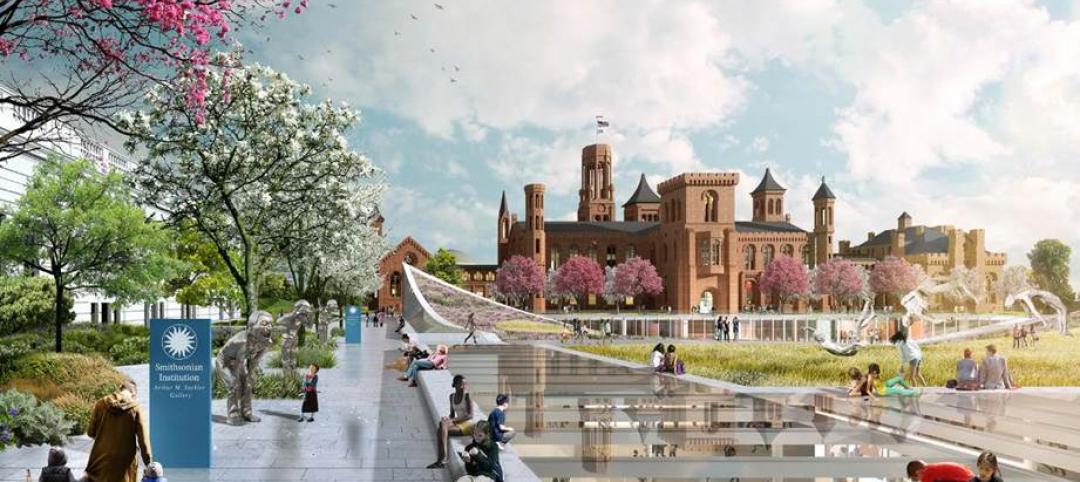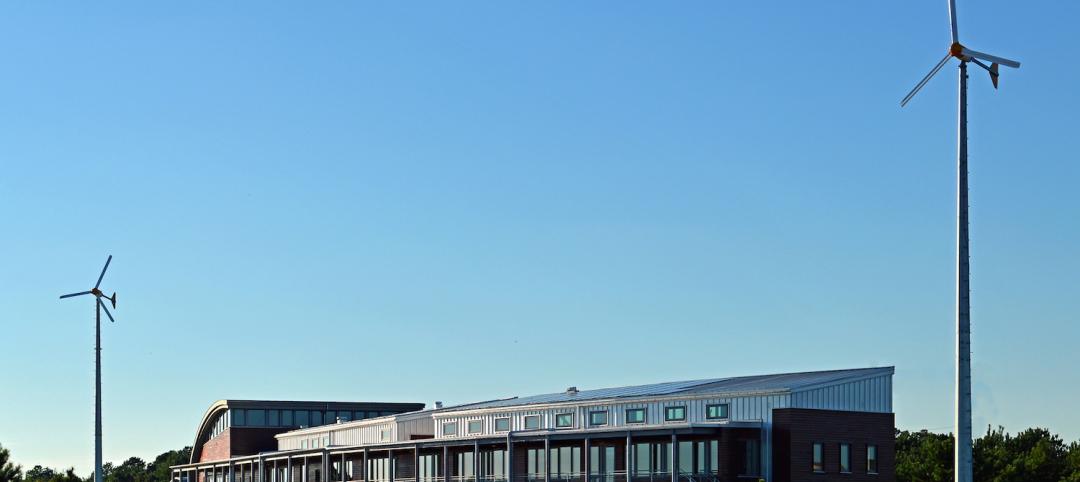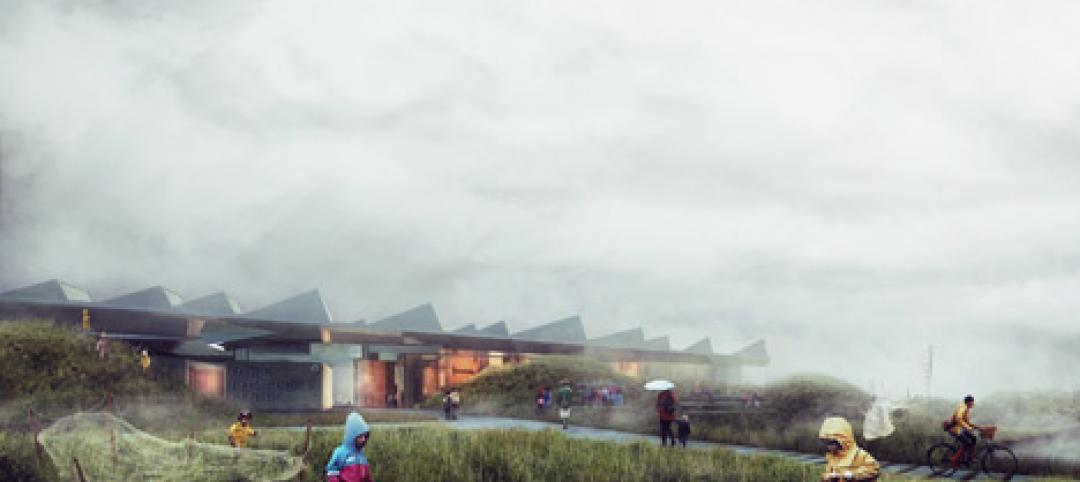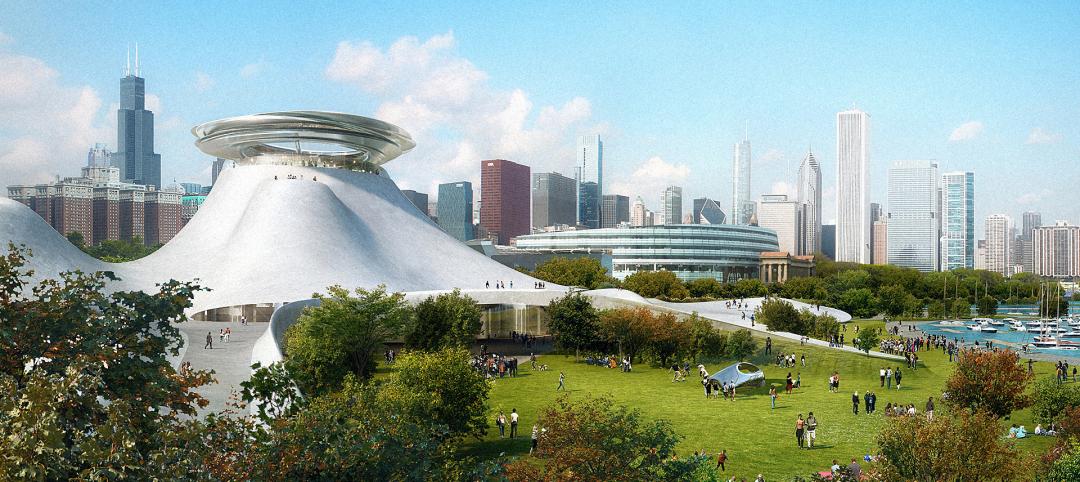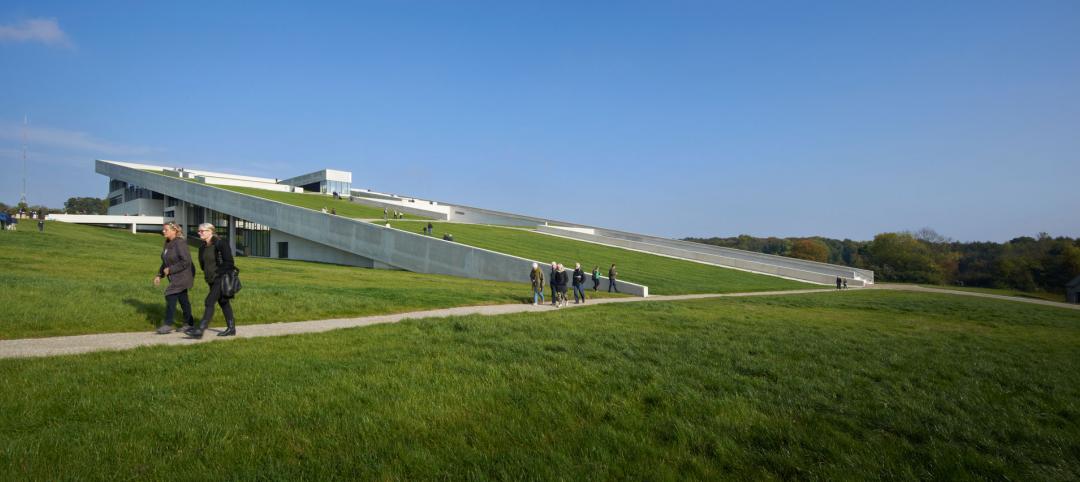The Philadelphia Art Commission has weighed in somewhat unfavorably on Robert A.M. Stern's design for the Museum of the American Revolution in Philadelphia.
According to The Inquirer, the commission didn't offically reject the $150 million proposal, but on Feb 5 it did communicate concerns about the building's design. Specifically, the commission asked Stern to eliminate a cupola, add eye-level windows on the ground floor, and rethink the building's composition.
The museum, supported by H.F. "Gerry" Lenfest, the Oneida Indian Nation, and the state of Pennsylvania, will exist in a space currently dominated by a red brick visitor center built for Philadelphia's Bicentennial in 1976. The commission has approved the demolition of the visitor center so that museum construction can start in the summer of 2014.
"This building really has a big-box-store mentality with a little bit of ornament attached," David B. Brownlee, a Penn art historian and vice chair of the Design Advocacy Group, told Inga Saffron of The Inquirer. Read the full report from The Inquirer.
Here is the firm's essay on the current design scheme for the museum (via www.ramsa.com):
The Museum of the American Revolution, anchoring the eastern end of Independence National Historical Park, is designed to introduce visitors to the American Revolution with its extraordinary collection of historical artifacts and contemporary interpretations demonstrating the continued worldwide importance of the Revolution.
Set amidst buildings of national and architectural significance—facing the First Bank of the United States (Samuel Blodgett, 1795), near William Strickland's Merchant's Exchange (1834) and the U.S. Custom House (Ritter & Shay, 1934)—the Museum will carry forward the restrained Classicism that heralded the birth of the Republic.
The Museum will address the corner of Chestnut and Third Streets with a broad plaza and an inviting entry facade that offers a glimpse at the treasures within through a two-story glazed portico. The museum shop and a café that opens to the sidewalk will enliven the Third Street facade; above, the wall that conceals the galleries will be articulated with brick quoining and recessed blind brick arches, accented with stone at the spring points and keystones and housing stone apsidal niches.
Our design organizes the Museum around a skylit central interior court. The ground floor will accommodate a multi-use theater and a changing exhibition gallery. Within the court a grand elliptical stair will take visitors up to 18,000 square feet of galleries and a theater dedicated to the exhibition of George Washington's marquee tent, one of the Museum's most dramatic holdings.
The Museum's third floor will offer rooms for conferences, symposia, and social events; two broad terraces overlooking the First Bank will command views to Independence Hall and the modern-day Philadelphia skyline.
The Museum will provide state-of-the-art storage and conservation spaces, following best practices for sustainable museum design to target LEED Silver certification.
The Museum will announce itself with a distinctive tower set directly above the lobby: atop a rectangular lantern with scalloped corners, sized to house a full-scale replica of the Liberty bell, will rise a cylindrical cupola with a bell-shaped roof that celebrates in a contemporary way the importance of our nation's founding.
Related Stories
| Dec 2, 2014
Main attractions: New list tallies up the Top 10 museums completed this year
The list includes both additions to existing structures and entirely new buildings, from Frank Gehry's Foundation Louis Vuitton in Paris to Shigeru Ban's Aspen (Colo.) Art Museum.
| Nov 14, 2014
Bjarke Ingels unveils master plan for Smithsonian's south mall campus
The centerpiece of the proposed plan is the revitalization of the iconic Smithsonian castle.
| Nov 12, 2014
Chesapeake Bay Foundation completes uber-green Brock Environmental Center, targets Living Building certification
More than a decade after opening its groundbreaking Philip Merrill Environmental Center, the group is back at it with a structure designed to be net-zero water, net-zero energy, and net-zero waste.
| Nov 7, 2014
NORD Architects releases renderings for Marine Education Center in Sweden
The education center will be set in a landscape that includes small ponds and plantings intended to mimic an assortment of marine ecologies and create “an engaging learning landscape” for visitors to experience nature hands-on.
| Nov 5, 2014
The architects behind George Lucas' planned Chicago museum unveil 'futuristic pyramid'
Preliminary designs for the $300 million George Lucas Museum of Narrative Art have been unveiled, and it looks like a futuristic, curvy pyramid.
| Nov 3, 2014
IIT names winners of inaugural Mies Crown Hall Americas Prize
Herzog & de Meuron's iconic 1111 Lincoln Road parking garage in Miami Beach, Fla., is one of two winners of the $50,000 architectural prize.
| Oct 29, 2014
Diller Scofidio + Renfro selected to design Olympic Museum in Colorado Springs
The museum is slated for an early 2018 completion, and will include a hall of fame, theater, retail space, and a 20,000-sf hall that will showcase the history of the Olympics and Paralympics.
| Oct 23, 2014
Prehistory museum's slanted roof mimics archaeological excavation [slideshow]
Mimicking the unearthing of archaeological sites, Henning Larsen Architects' recently opened Moesgaard Museum in Denmark has a planted roof that slopes upward out of the landscape.
| Oct 16, 2014
Perkins+Will white paper examines alternatives to flame retardant building materials
The white paper includes a list of 193 flame retardants, including 29 discovered in building and household products, 50 found in the indoor environment, and 33 in human blood, milk, and tissues.
| Oct 15, 2014
Harvard launches ‘design-centric’ center for green buildings and cities
The impetus behind Harvard's Center for Green Buildings and Cities is what the design school’s dean, Mohsen Mostafavi, describes as a “rapidly urbanizing global economy,” in which cities are building new structures “on a massive scale.”


